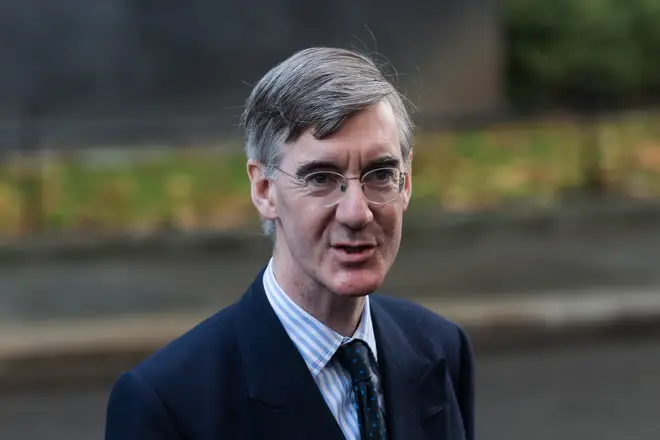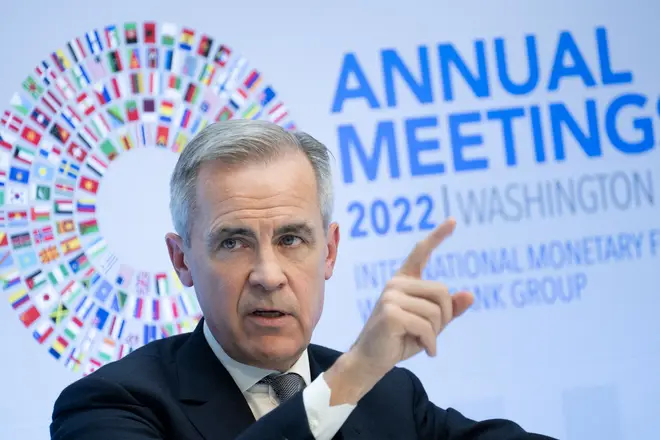
Nick Abbot 10pm - 1am
4 November 2022, 19:47

Conservative MP and diehard Brexiter Jacob Rees-Mogg has hit out at claims by former Bank of England governor Mark Carney that inflation and the weak pound had been exacerbated by leaving the EU.
Mr Carney, a former advocate of staying in the EU, said he had forecast the exchange rate would stay down after Brexit, adding to inflationary pressures, and that the economy would shrink.
He argued that this has now happened, with the Bank of England forced to raise interest rates in a bid to stem spiralling inflation "despite the fact that the economy is going into recession".

Lewis Goodall unpacks long-term effects of mini-budget fallout
But Mr Rees-Mogg dismissed Mr Carney's comments as "bizarre" and pointed the finger of blame at the Bank.
He told the Mail Online: "To blame this on Brexit is bizarre and only an ultra Remainiac would make such a bogus argument.
"As the US has increased rates faster than the UK it is odd to blame the rise on Brexit.
"A Bank of England-sponsored 21 per cent increase in the money supply since 2019 is a more probable culprit for inflation hence the need to raise rates to tackle it."

Economist explains the 'historically large hit to living standards'
Mr Carney told BBC Radio 4's Today programme that the pound still "hasn't recovered" after moving "sharply" against "all major currencies" following the result of the EU referendum.
He said one of the issues faced by the Bank is the difference in parity and market exchange rates, with "big" and "persistent" discrepancies seen between the two when there is a "long-standing shock to productivity in the economy".
"It was predicted that we would get that, it's coming to pass," he said.


Mr Carney added" "If I can actually cast your mind back to a few years ago, this is what we said was going to happen, which is that the exchange rate would go down, it would stay down, that would add to inflationary pressure, the economy's capacity would go down for a period of time because of Brexit, that would add to inflationary pressure, and we would have a situation - which is the situation we have today - where the Bank of England has to raise interest rates despite the fact that the economy is going into recession."
Mr Carney, now the UN special envoy on climate and finance, said the UK had taken a "big hit" to its productivity and capacity in the economy, with "tough decisions" needed to remedy this.
"And that's one of the consequences of a decision taken a few years ago," he said.
However, No 10 pointed to the Covid pandemic and war in Ukraine as driving forces behind the UK's current financial woes.
The Prime Minister's official spokesman said: "What we are seeing is challenges caused by the pandemic and by war in Europe which have been driving factors in terms of inflation and we're seeing high inflation in a number of countries around the world."
Asked if he was denying Brexit caused financial issues, he said: "Our focus is on ensuring we have stability and fiscal credibility.
"That's what the Chancellor and the Prime Minister are focused on rather than on a decision taken a number of years ago where people made a clear decision."